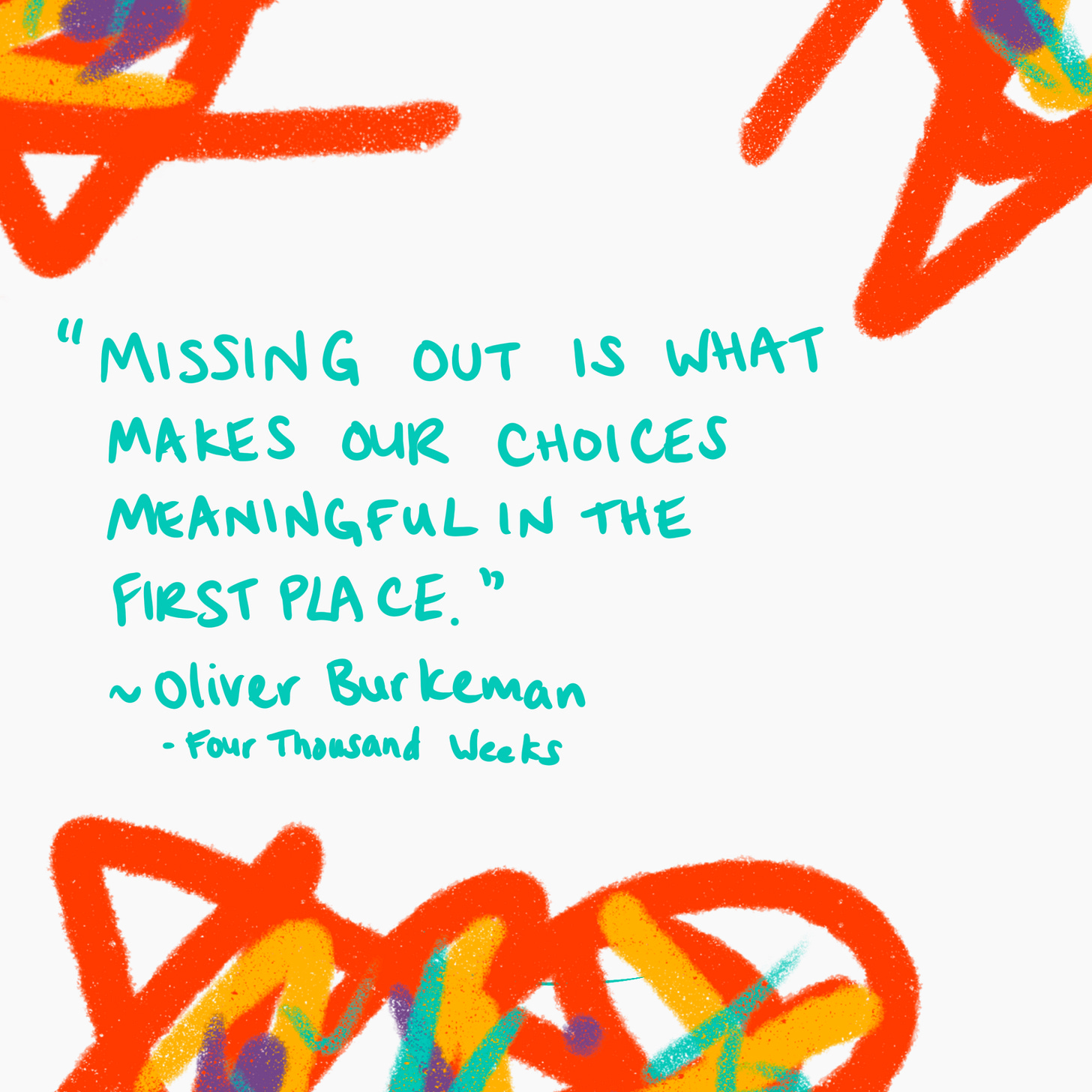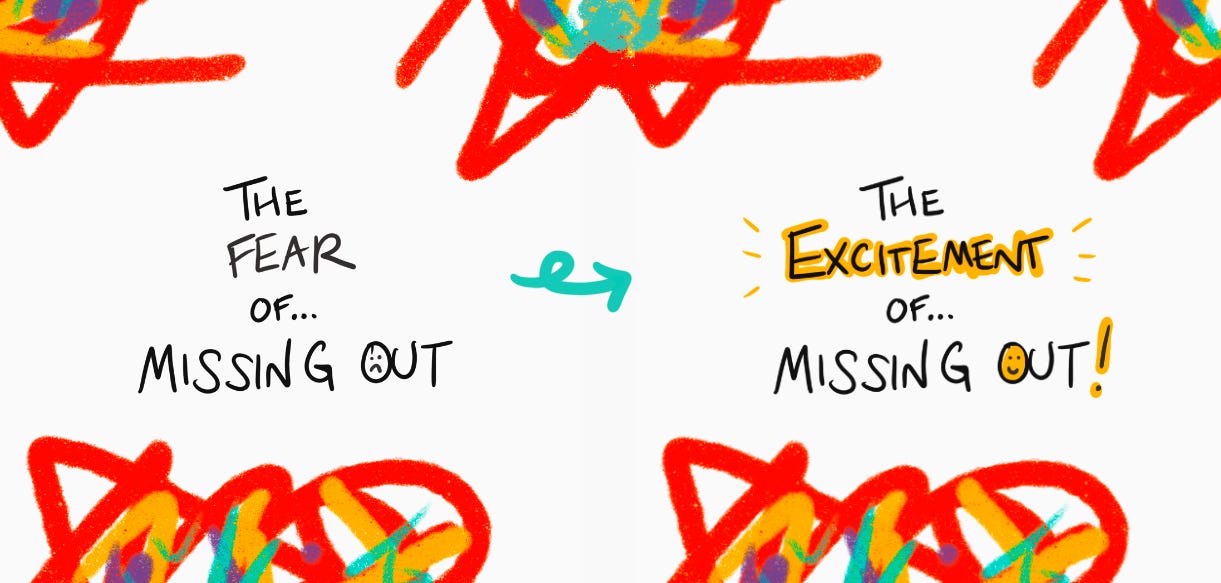The Messy Stuff: Fear of Missing Out
Thoughts on missing out and how it's really related to the search for meaning, thanks to the author Oliver Burkeman.
This week, I’ve finally emerged from the fog of being ill and caring for someone else who’s ill. From finding it really hard to keep my eyes open. From feeling like I’ve got my energy back but then crashing out again the next day.
And I’ve finally been able to hold my eyes open long enough to read a few pages of a book before I fall asleep. That book has been Oliver Burkeman’s Four Thousand Weeks. It’s a book I’ve read before, and found reassuring at times of my life when I haven’t been able to do much, so I felt the urge to reach for it again.
That urge is because I’ve had so many infections since Christmas. Tonsillitis twice and sinusitis once for me. And, on top of that, the childhood classics of croup and chickenpox for my son. Plus a vicious cough and cold that seems to have come for me, my husband, and my son with all germs blazing. This has meant enforced rest (for me) and / or being a mattress or chair for my son to rest on (for me and my husband).
For so much of that time I have had this creeping feeling that I’m not doing what I really need to be doing. I’m resting. And at times, even if I didn’t need to rest, I was somewhat trapped into resting. It’s pretty hard for me to write like this or create doodles when there’s 13kg of human draped over me.
It’s this creeping feeling that Four Thousand Weeks captures and bats away so well.
So, whilst I’m pondering whether or not to write a full “Lou Reads” on this book, here are some of my early take-aways.
Before I dive in, I’m hesitating to refer to the book’s author as ‘Burkeman’. For some reason, I’m going to go with Oliver. As this isn’t a full Lou Reads it feels less formal, ha.
In the book, Oliver articulates the broader sense of pressure to be on top of everything all the time, never getting behind, and to constantly seek to expand or optimise your productivity. The first chapter covers how he came to rebel against this pressure. This culminates in this rather beautiful quote, near the end of the first chapter:
“Missing out is what makes our choices meaningful in the first place.”
This single quote has really stayed with me the last few days and inspired me to make a couple of doodles. The subtitle of Four Thousand Weeks is ‘Time Management for Mere Mortals’. I think these doodles are some reframes that could be helpful if you’re a mere mortal like me.
Reframe #1: The Excitement of Missing Out
Forget the fear of missing out. What are you excited about missing out today? What are you choosing to do instead? Woohoo!
(It’s Friday and this blanket on top of me is definitely something to be excited about right now. I will not be going out out tonight! Yay!)
Reframe #2: The Not To-Do List
The blurb on the book refers to ‘lengthening to-do lists’ as part of the problem. How about we delete some of the things on those lists? And go even further - write the list of things you’re not going to do. Here’s to the things I’m not going to do today, thanks very much!
What about you
What are you going to enjoy missing out on this weekend? What’s on your not to-do list?





Love this reframe!! I'm going to start embracing the JOMO instead of the FOMO!
This idea also helps me acknowledge my own intentionality--I deliberately craft my life in many ways so as to opt out of certain experiences as much as possible... and that's a wonderful thing!